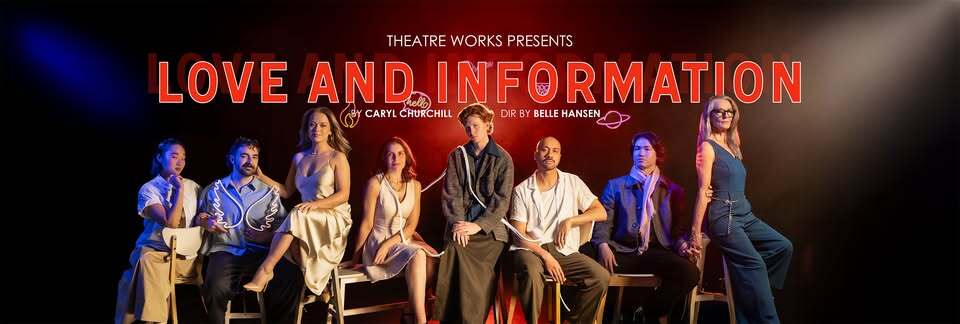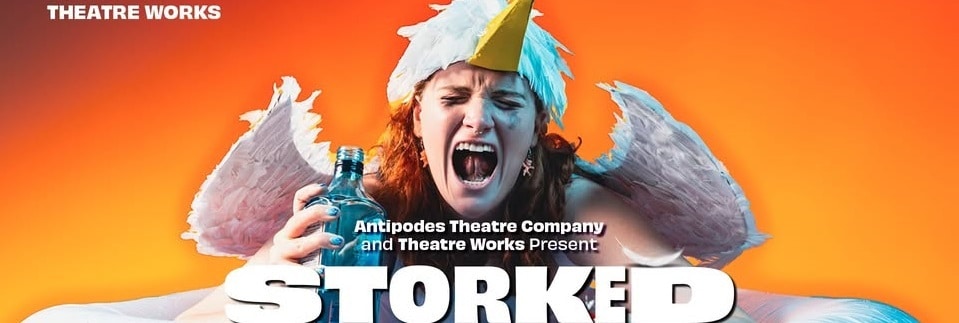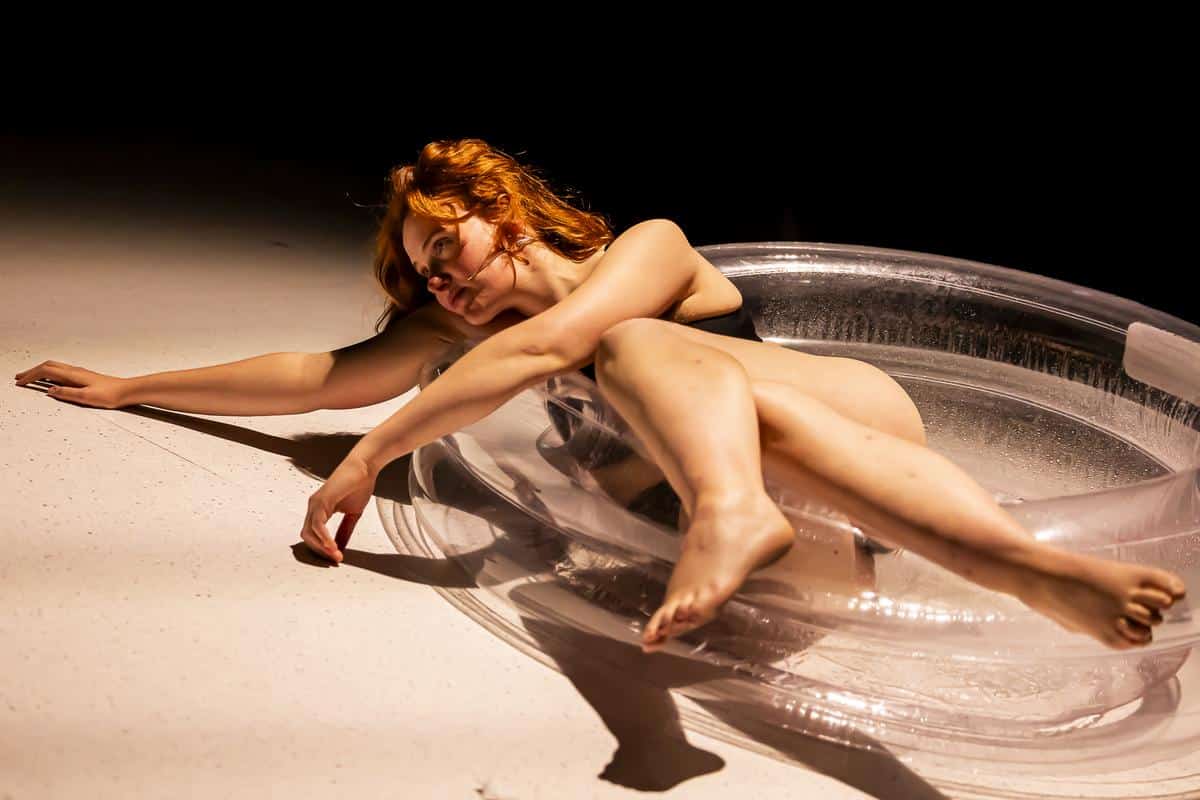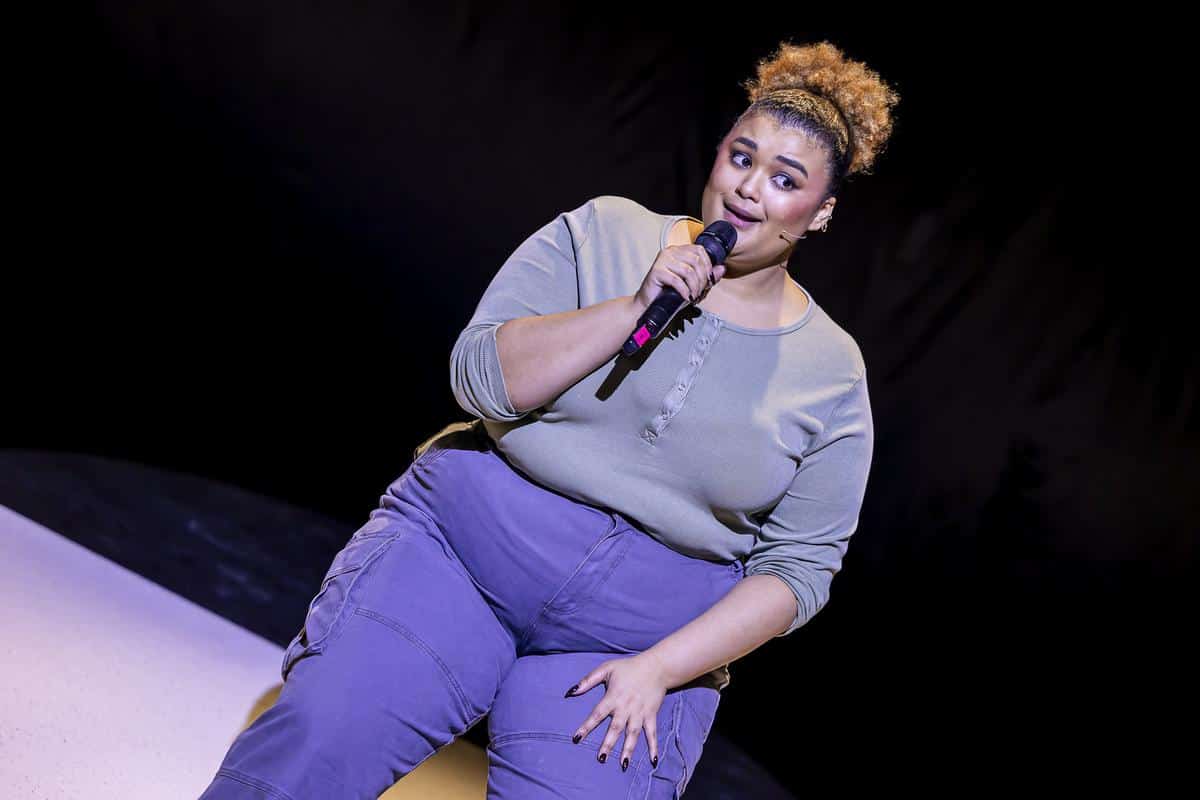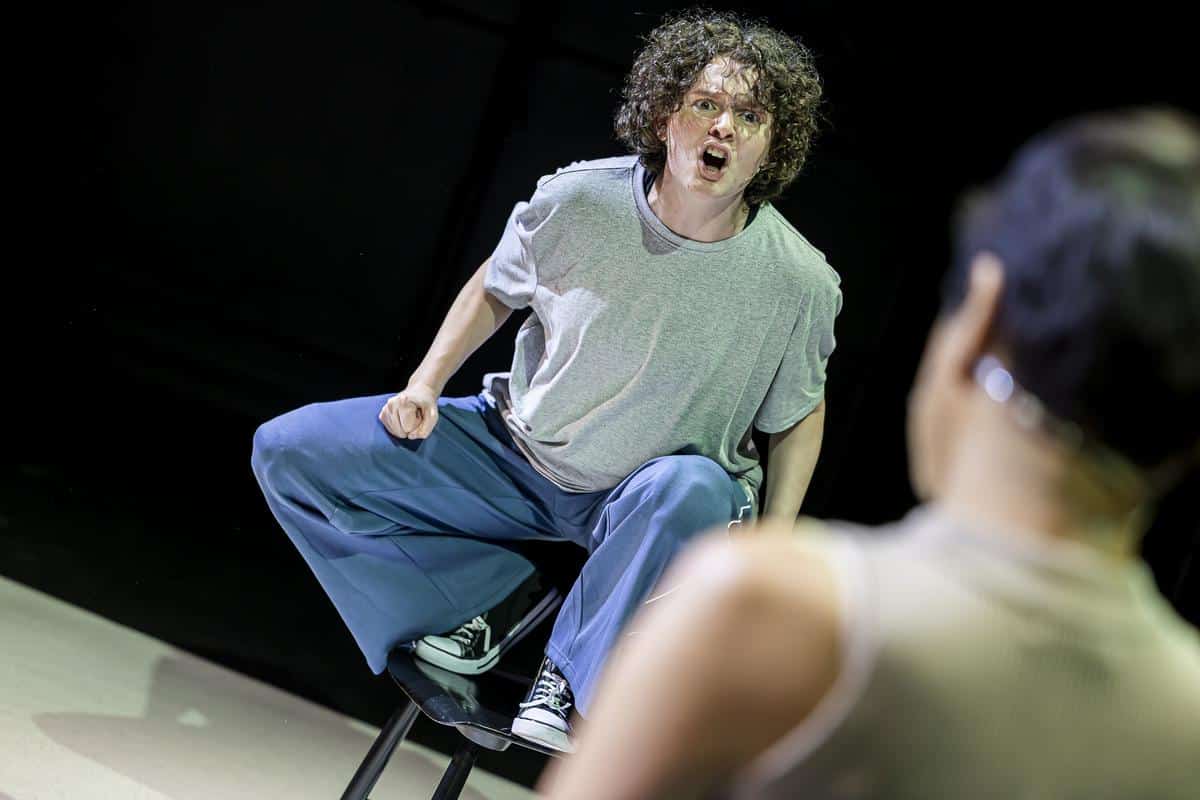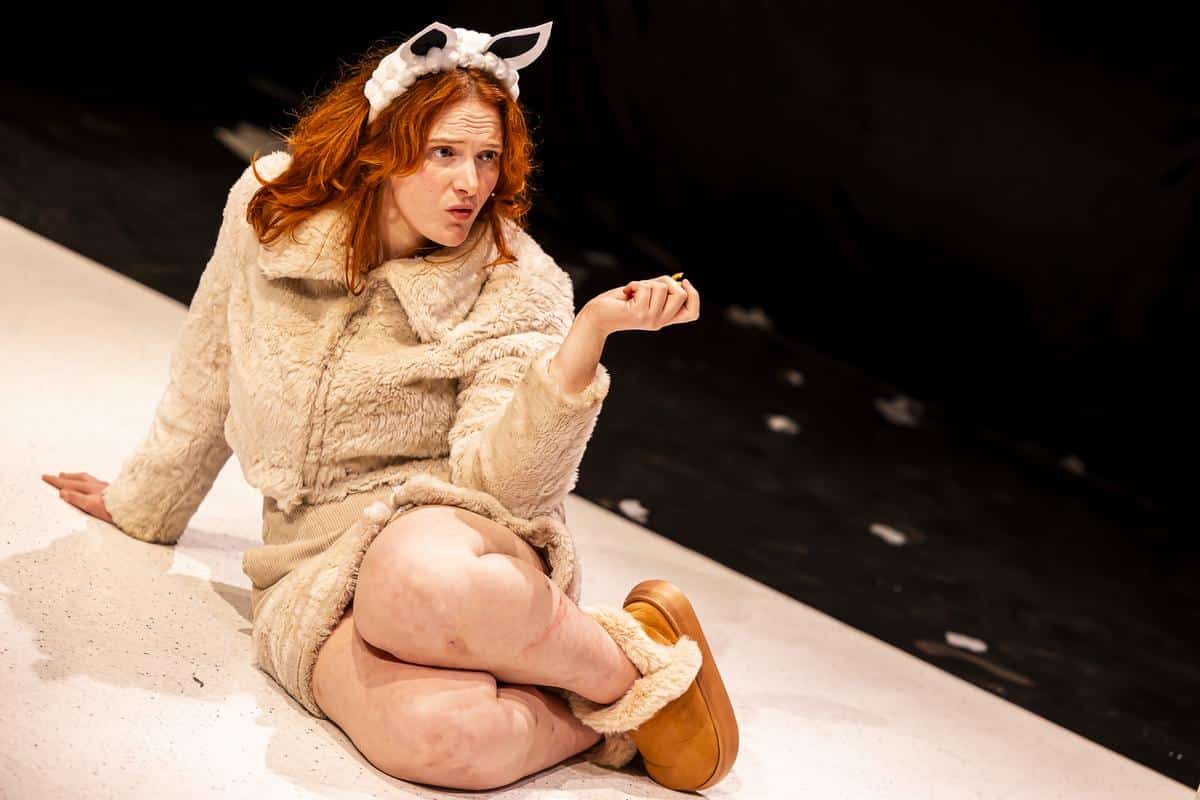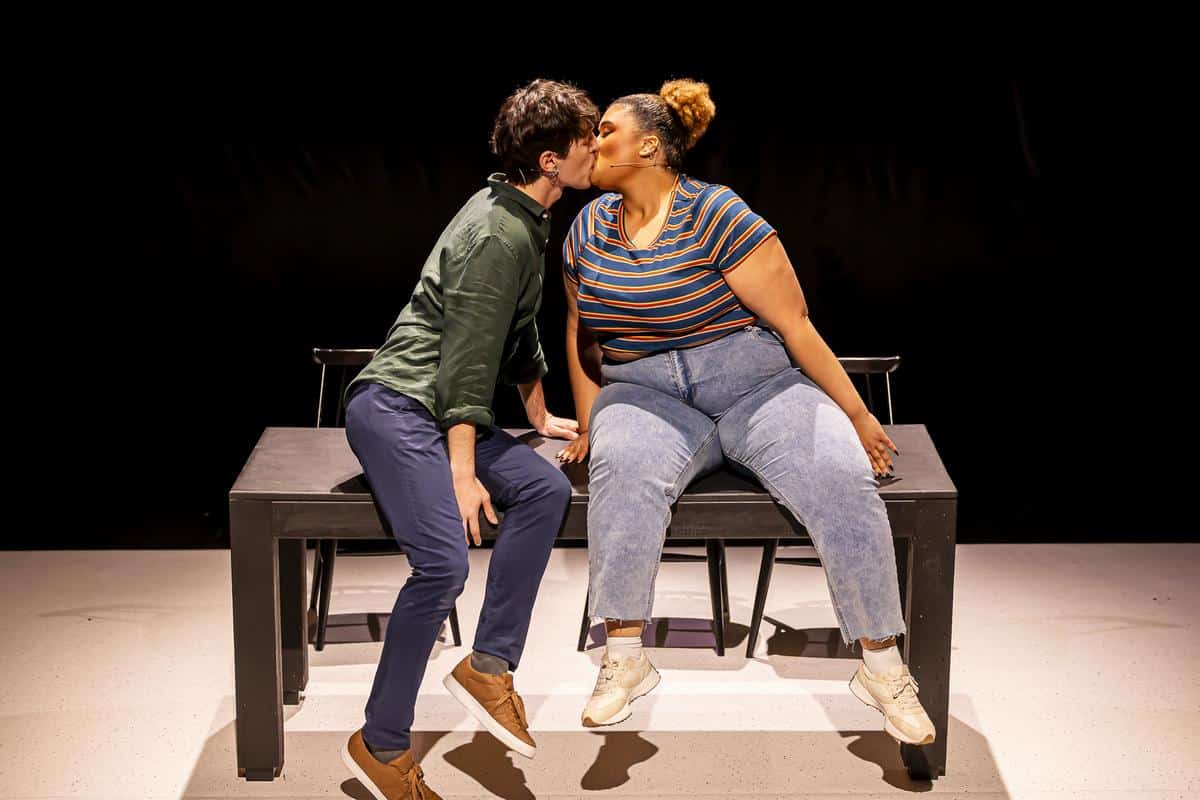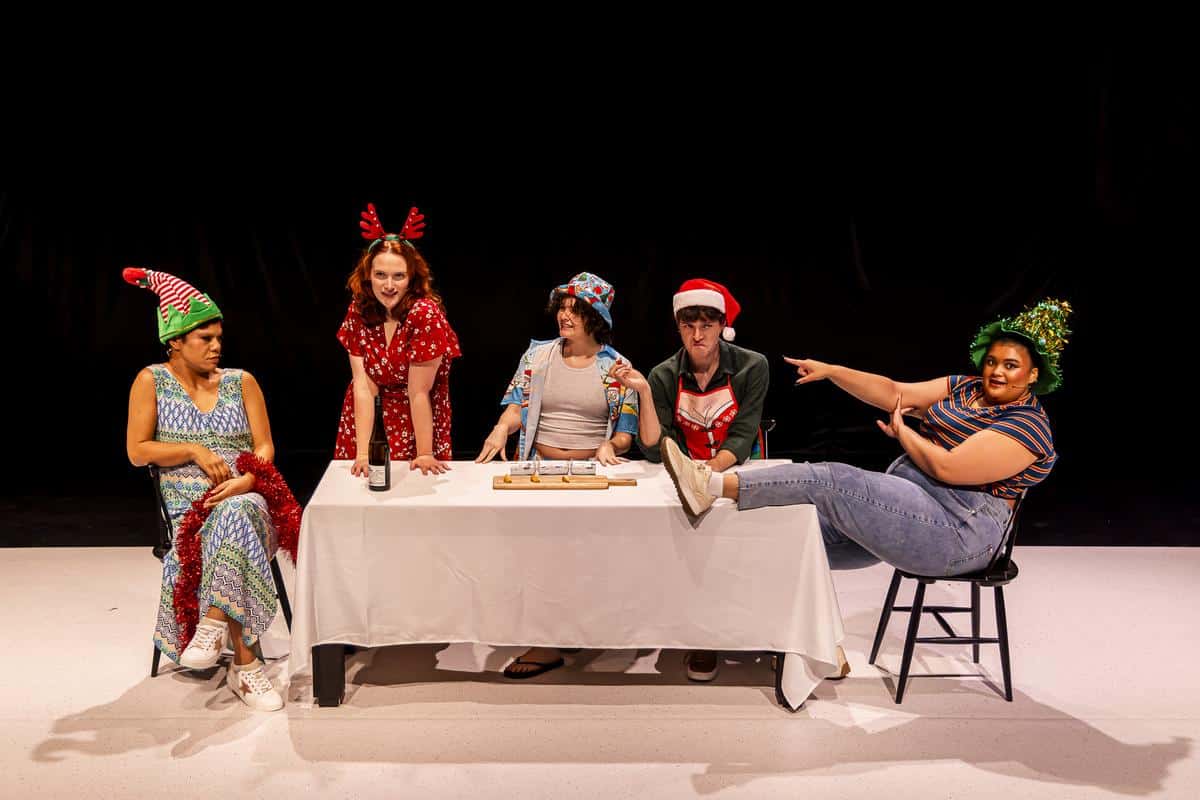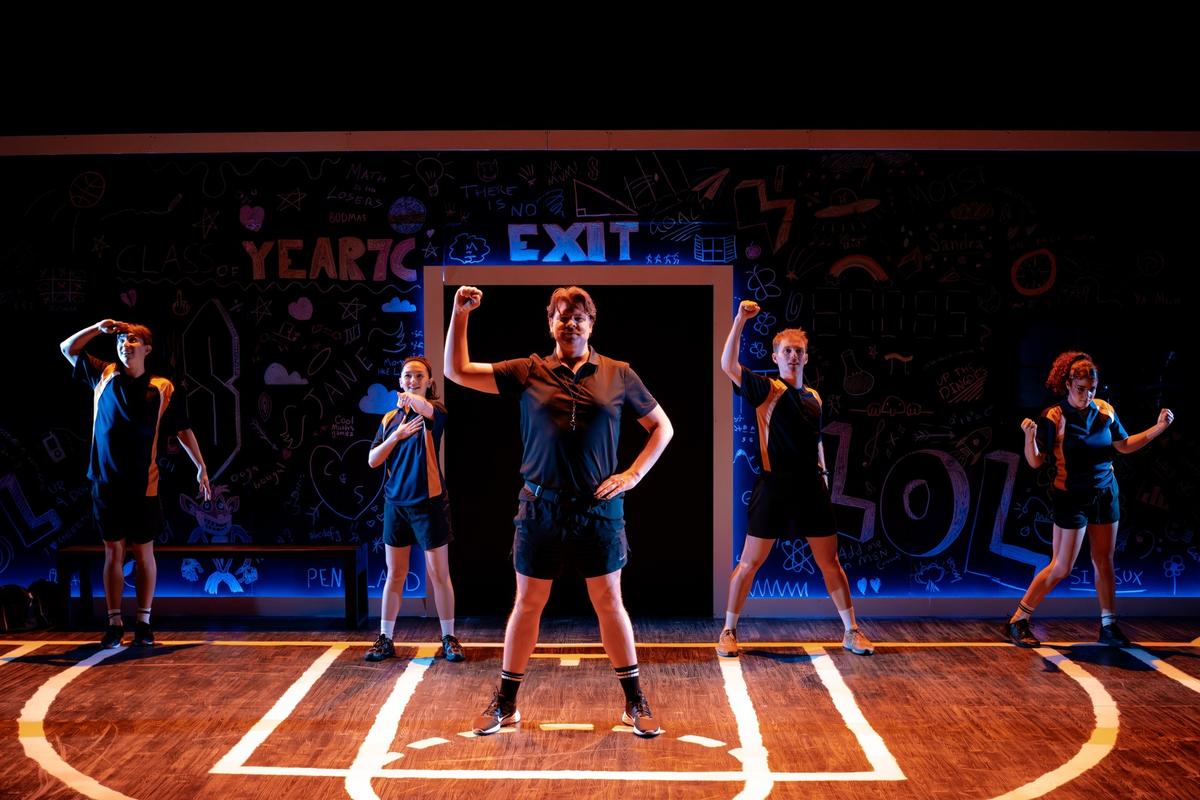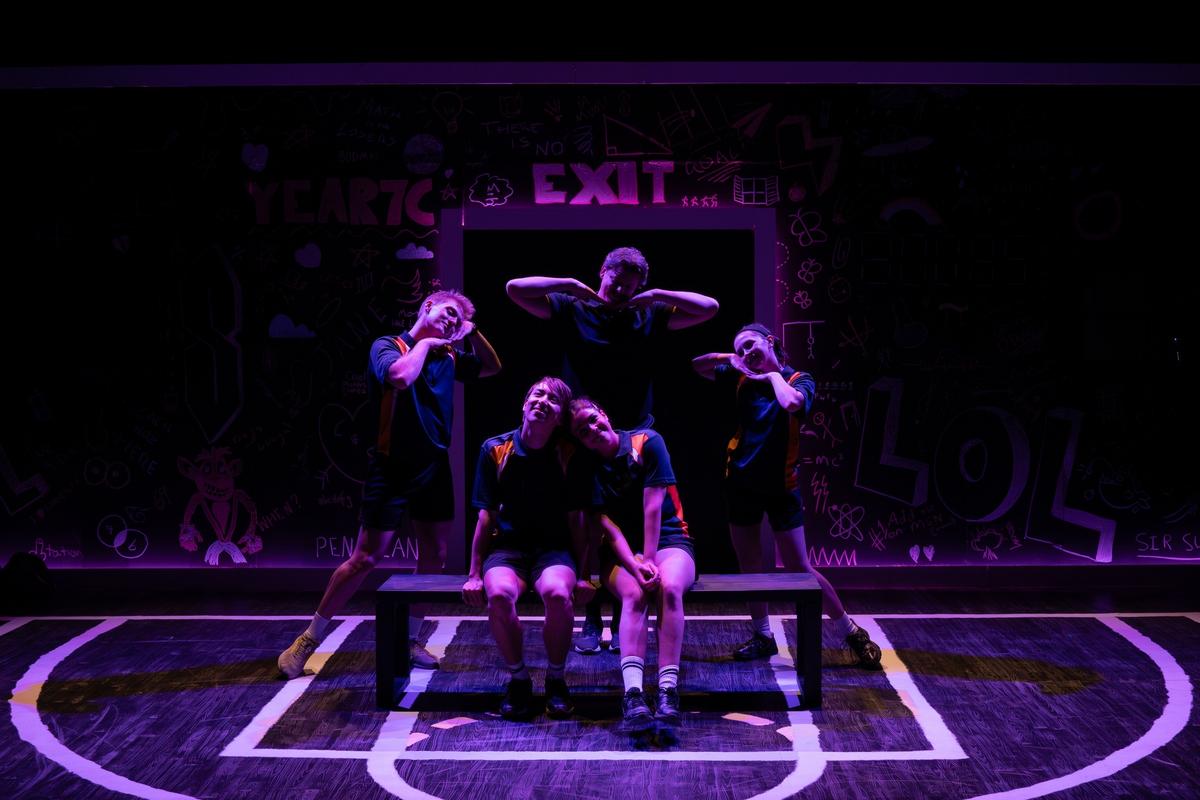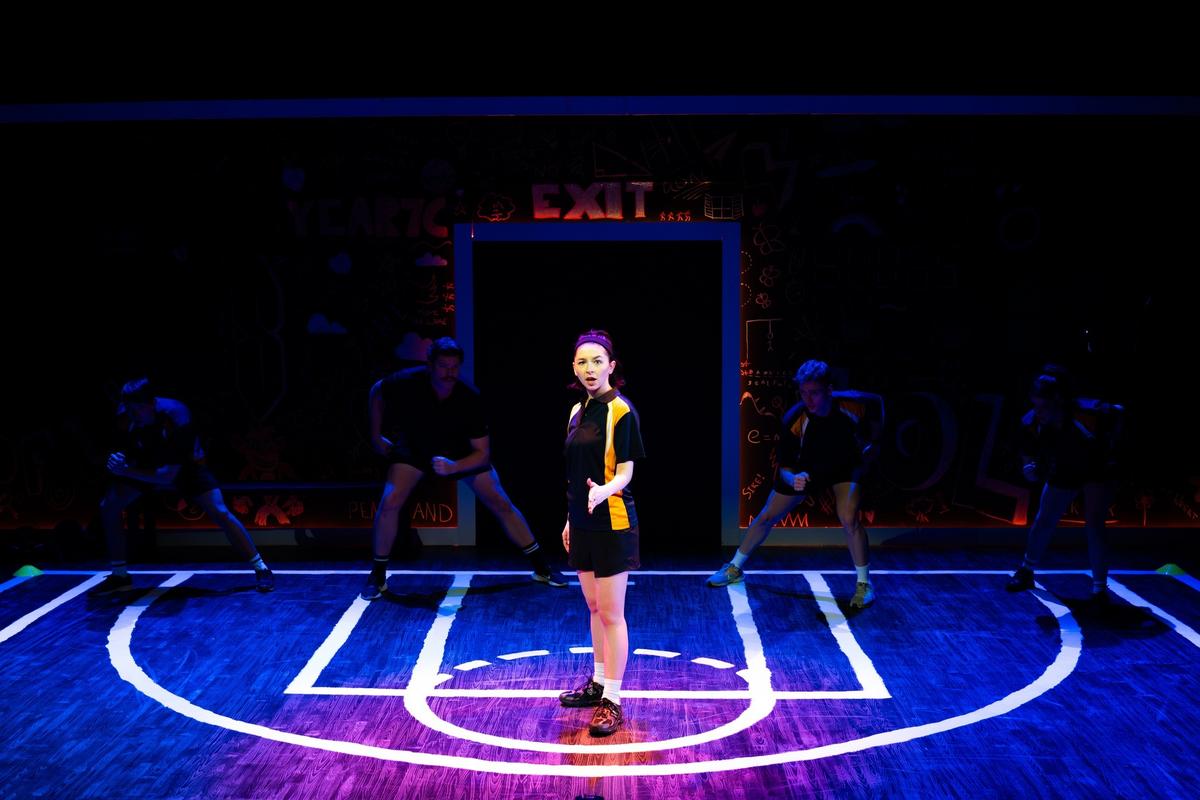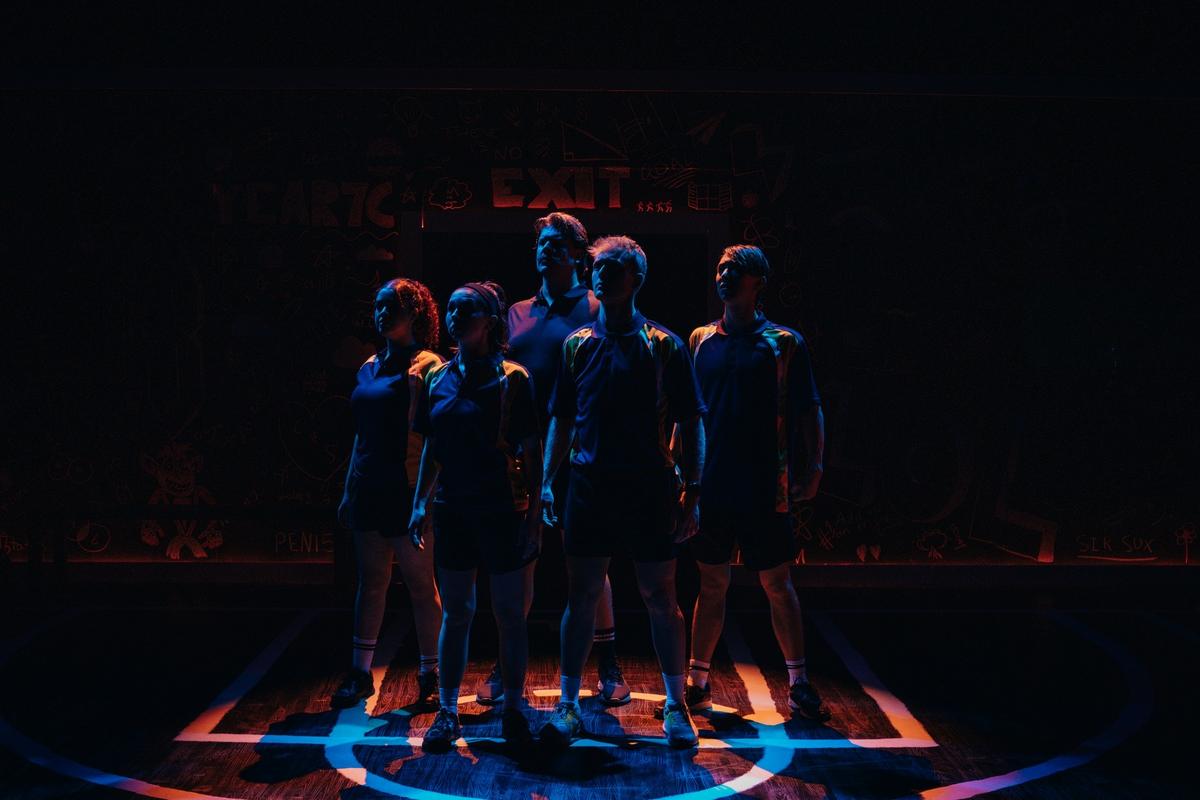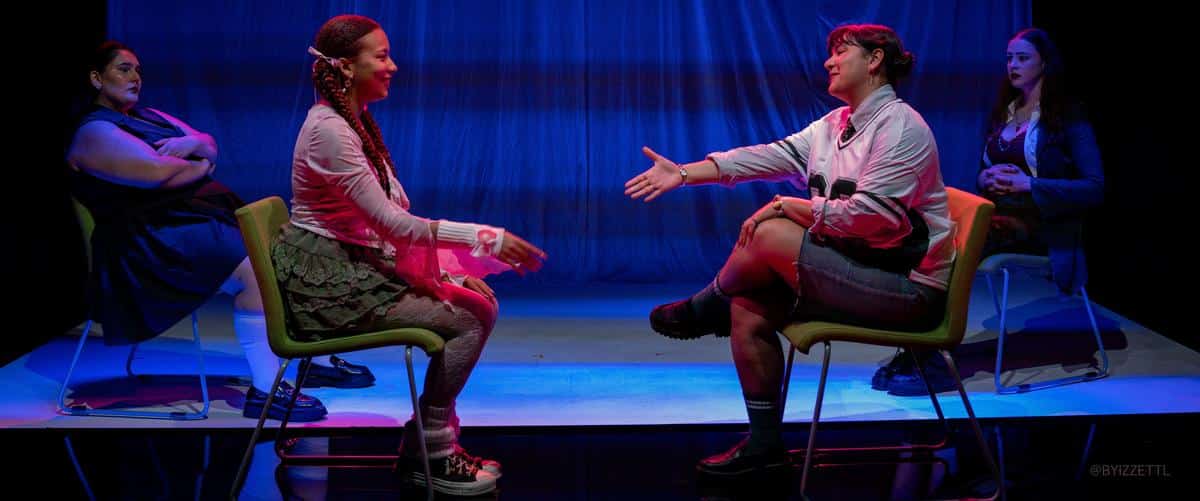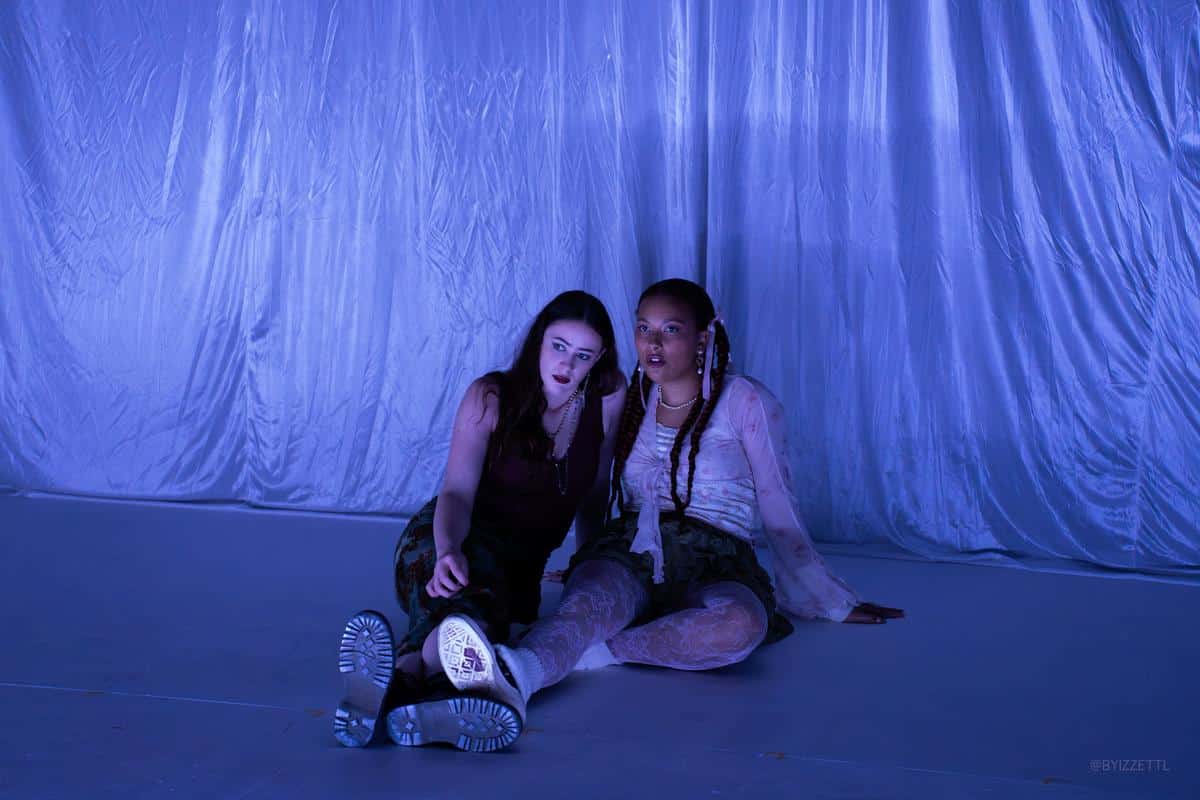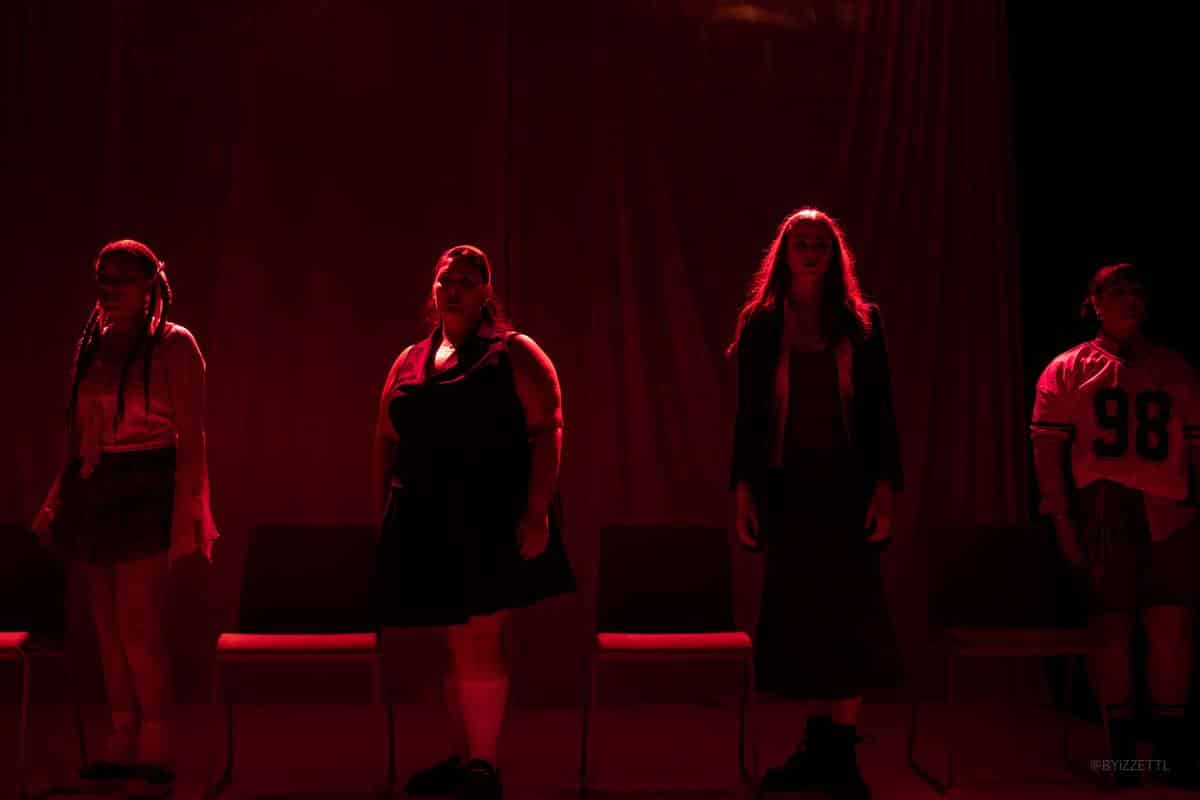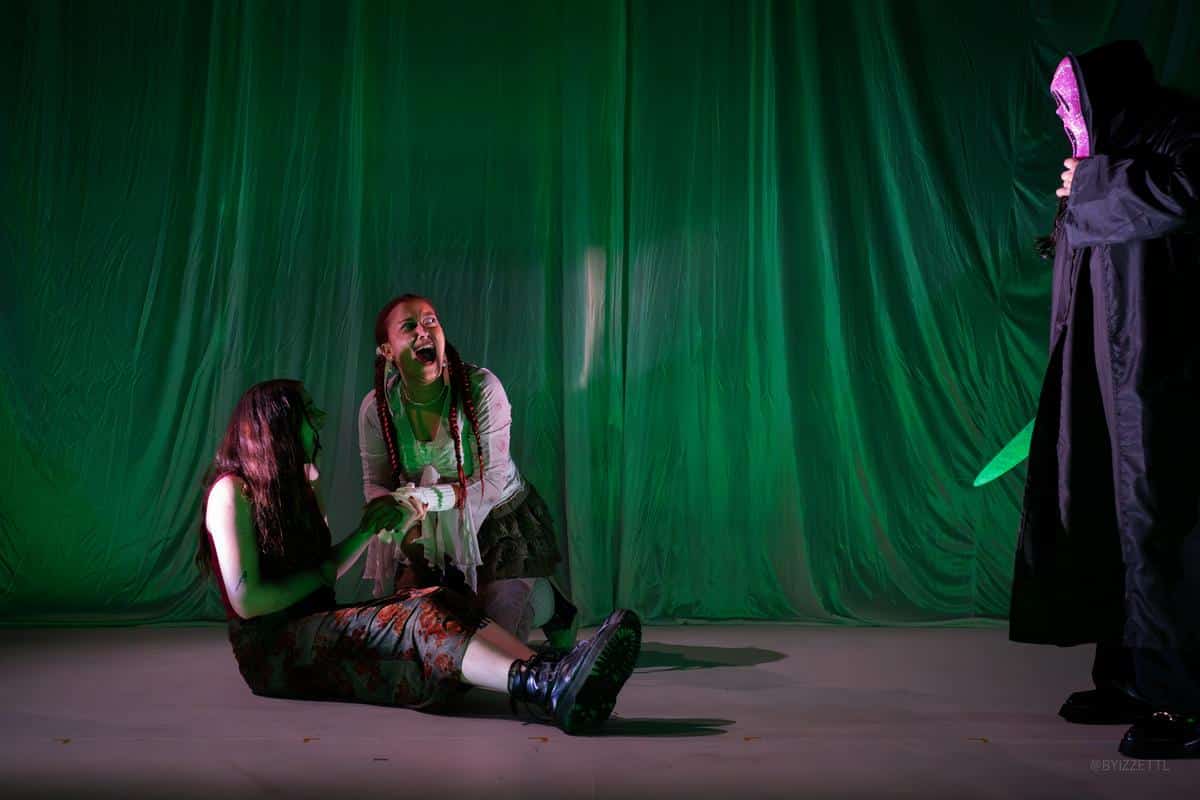Love and Information at Theatreworks offers a joyous, fast-paced journey through a series of micro-moments that illuminate the many facets of human connection. Under the vibrant direction and choreography of Belle Hansen, this production presents a kaleidoscope of vignettes, each one a tiny window into love in its countless forms: between parent and child, siblings, romantic partners at the beginning or end of a relationship, and even the more abstract, conceptual experiences of love. The result is an adventurous theatrical experience that feels both immediate and expansive.
From the moment the lights rise on Harry Gill’s cleverly designed set, rotating pieces transform with ease and projections of bright blue skies and puffy clouds by Hannah Jennings sweep the audience into a world that is as visually inventive as it is emotionally resonant. Sidney Younger’s lighting design bathes each scene in a warm palette, underscoring tenderness or tension as required. At the same time, Jack Burmeister’s sound and composition evoke the golden age of Hollywood with music inspired by Gershwin. At times, the soundtrack dances alongside the action, punctuating moments of tenderness or humour and making the transitions between vignettes feel seamless.
The cast is a diverse ensemble—Junghwi Jo, Iopu Auva’a, Jane Edwina Seymour, Jack Francis West, Charlie Morris, Felix Star, Emma Woods and Sean Yuen Halley—who bring these snapshots of life to vivid, often playful reality. There is an energy onstage that feels akin to actors exploring a Meisner exercise: words float above the subtext, and true meaning emerges from silent exchanges, body language and emotional undercurrents. Each performer embraces that challenge, allowing humour, heartbreak and wonder to coexist within a few lines of dialogue.
It is apparent that collaborative work between the director and actors was central to the rehearsal process, and moments of genuine spontaneity lit up the stage.
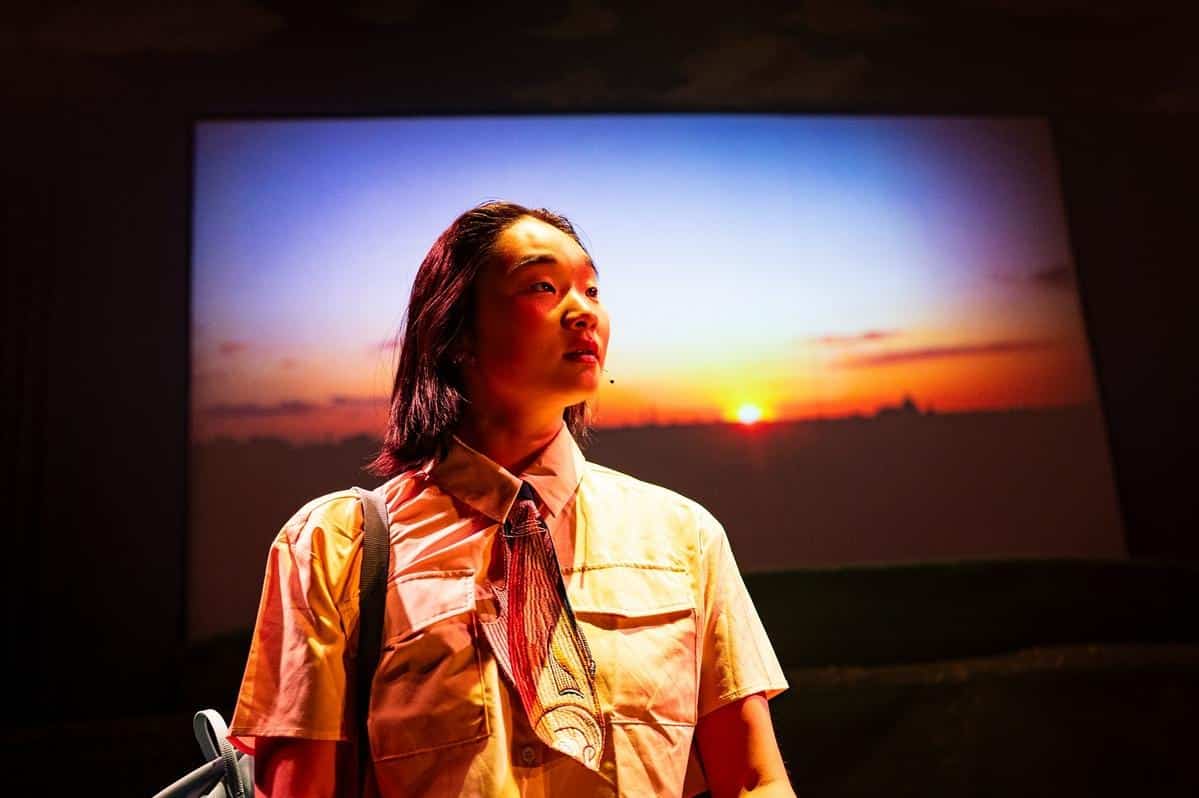
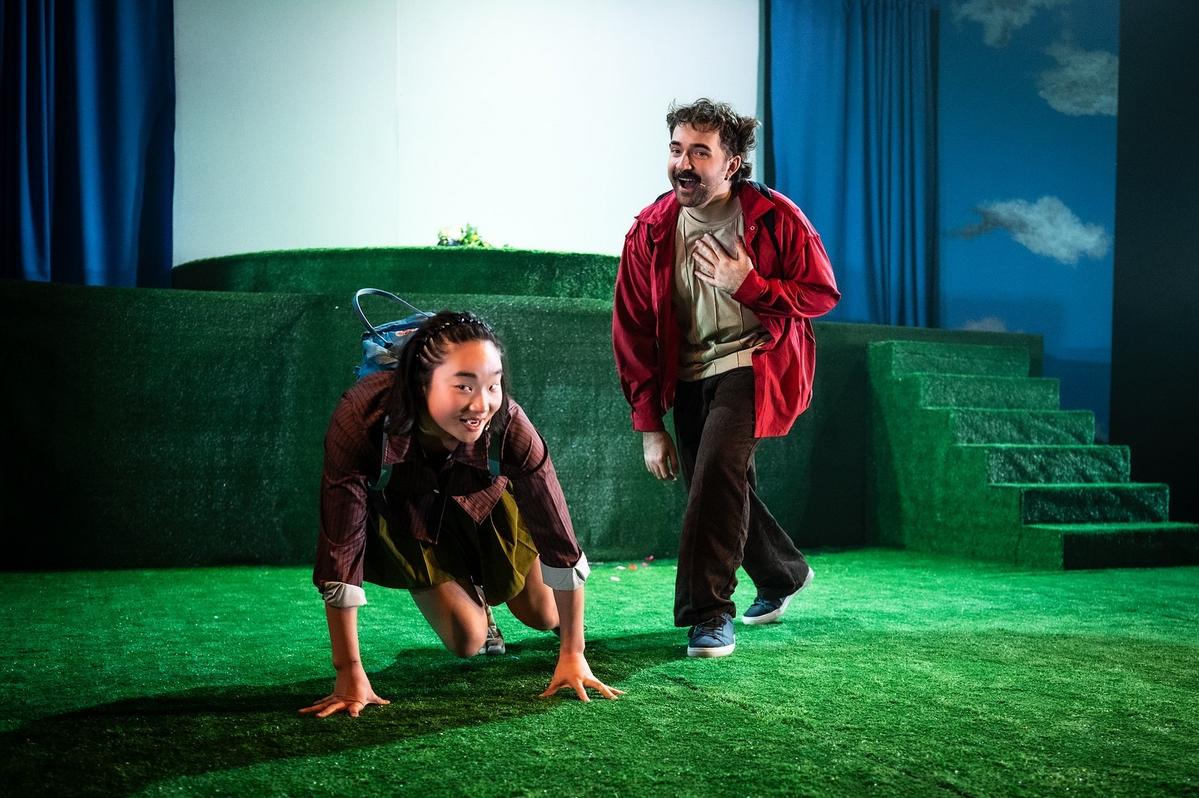
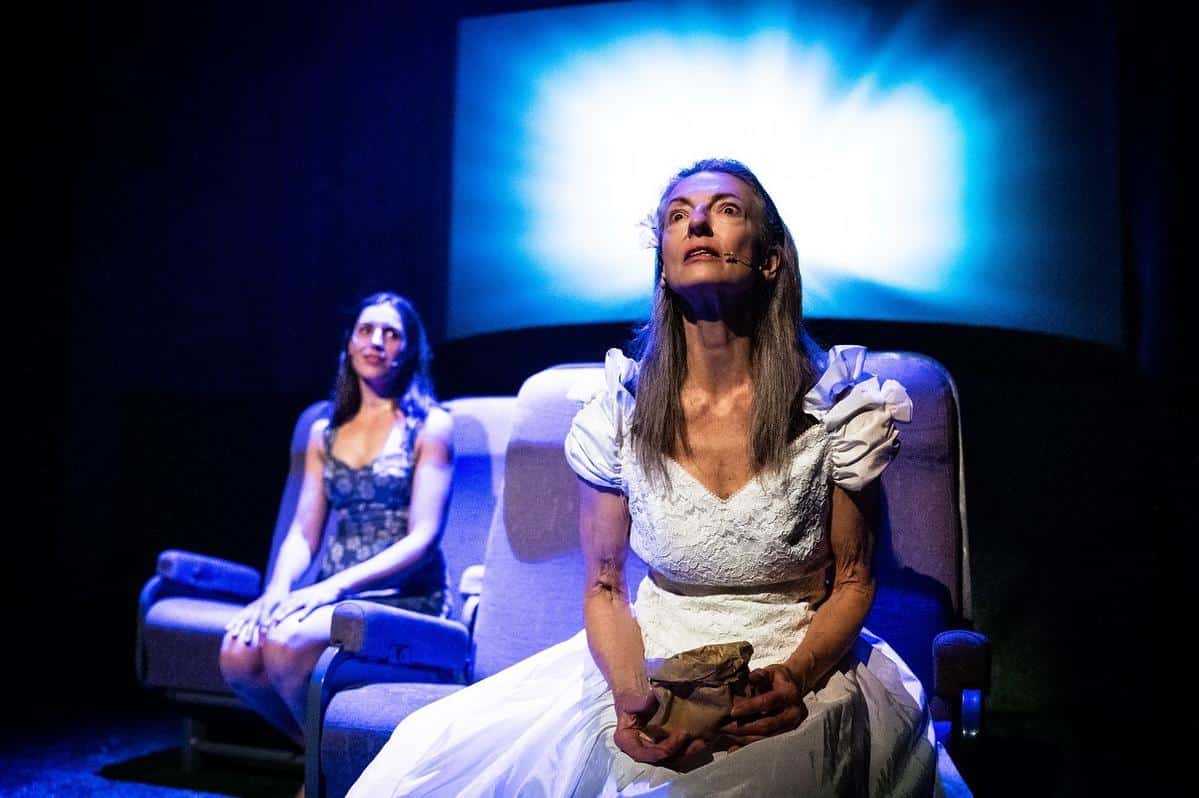
Movement and choreography are integral to this production. The actors flow across the stage, interacting with set pieces, props and each other in ways that feel organic. Choreographed movement ranges from subtle shifts in posture to more overt group sequences that push the action forward. The rotating set becomes a character in its own right.
Costume design by Harry Gill is a highlight: the soft, inviting palette feels both lush and approachable. Each colour choice seems deliberate, through oranges, blues and earth tones that mirror the emotional tenor of each vignette. The textures of fabric invite the audience into a human, tactile world. The actors’ wardrobes become an extension of emotional colour, visually echoing the subtext beneath their brief but potent scenes.
If there is one area where a gentler touch might allow the emotional truth to breathe even more, it is during the second half of the show. As the pace quickens and the stakes rise, certain confessions or confrontations feel rushed, as though the performance is intent on maintaining momentum rather than lingering in nuance. A few extra beats here or there, just a fraction of pause, could allow subtle shifts in expression or tone to blossom more fully. That being said, the ensemble remains fully committed, and any sense of haste never feels careless or rushed.
Overall, Love and Information is an inspiring theatrical adventure that marries inventive design, spirited performances and moments of genuine emotional resonance. Belle Hansen and her creative team have delivered a production that celebrates the beautiful complexity of human relationships. Theatreworks provides the perfect intimate setting for these fleeting stories to land with impact. If you have ever wondered how a few lines of dialogue can carry an entire universe of feelings, this is the show to catch. I wholeheartedly encourage everyone to experience this vibrant, daring exploration of love at TheatreWorks.
To book tickets to Love and Information, please visit https://www.theatreworks.org.au/2025/love-and-information.
